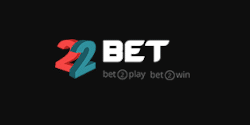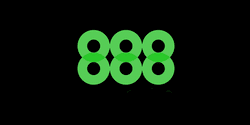Greek casino sites are legal in theory, but political maneuvering by lawmakers looking to protect the state monopoly has resulted in zero online casinos actually receiving licenses to operate. The situation has been going on so long that it has exasperated even the most conservative of gambling brands.
Large online casinos such as 888, which typically wait for licensing approval before moving into a new market, have run out of patience to the point where they now openly accept Greek customers contrary to local law.
There is some good news for players, however. Nowhere in the law does it say it is an offense to play real money games at unlicensed gambling sites. Existing laws and the ongoing debates regarding online gambling involve lawmakers, industry types and the European Commission, not individual players.
The other good news is that things will be changing soon. The Greek government has finally decided to proceed with plans to revamp its licensing rules and begin authorizing online casinos. While we wait for that process to play out, you can visit any of the following gambling websites to play for real money today:
-
Sign Up Bonus100% Deposit Bonus22Bet CasinoClaim Bonus
-
Sign Up Bonus$25 New Player Bonus18+ to Play, T&Cs ApplyBet365 CasinoClaim Bonus
-
Sign Up Bonus50 Free Spins When You Stake £1018+. Play Safe. New customers using Promo code M50 only. Opt in required. 1x per customer. Mining Pots of Gold only. Min £10 stake. Max 50 Free Spins at 10p per spin. Free Spins expire 24 hours from issue. Max redeemable £30. Eligibility rules, game, location, currency, payment-method restrictions and terms and conditions apply. www.begambleaware.org #adWilliam Hill CasinoClaim Bonus
-
Sign Up BonusWager £10 Get £30 + 100 Free Spins18+ to Play, T&Cs ApplyBetVictor CasinoClaim Bonus
-
Sign Up Bonus100% up to £100 instant Welcome BonusT and C apply888 CasinoClaim Bonus
Greece Gaming Laws
Much of the controversy surrounding legal online casinos in Greece revolves around the government-backed monopoly provider OPAP. OPAP is a public company that has long enjoyed monopoly status in Greece as the only legal provider of sports betting and lottery-style games, and most gambling reforms over the years have sought to keep that monopoly intact.
In 2011, the government made motions to liberalize the industry when it issued 24 temporary licenses to international gambling sites. That effort was short-lived as the government revoked those licenses a year later. Their reason for doing so was to inflate the selling price ahead of the government’s plan to sell its 1/3rd stake in OPAP to private investors.
The Greek insistence on propping up OPAP as the sole monopoly provider of legal gambling has caused considerable friction between local lawmakers and the European Union. EU trade agreements stipulate that if an industry is legal in an EU member state, that state is not permitted to prevent companies in other EU states from entering the market and competing with domestic companies involved in that business.
In other words, Greece must choose between outlawing online casinos altogether or granting international gambling companies access to the domestic market. The only exception that would permit a monopoly would be an honest attempt to protect consumers or ensure the “preservation of order.” A European Court of Justice ruling in 2013 found that Greek’s gambling laws do not meet the conditions for an exception. Thus, the court ordered Greece to either open the market to competition or reform the monopoly.
A renewed effort to open the market to competition began to materialize in 2015. That year, the government announced plans to issue new online casino licenses to companies wishing to serve the Greek market. Those plans took further shape in September of 2016 when the Deputy Finance Minister announced they would begin accepting license application in October of 2016.
We have yet to see the outcome of this latest effort to open the market, but past experience with online gambling legislation in Greece has taught us to eye all developments with a sense of caution. The Greek government has a history of fumbling when it comes to opening the market. We will also have to see if there is any interest from operators who have had bad experience after bad experience dealing with the Greek system.
One other pitfall has to do with tax rates. A separate proposal seeks to increase the gambling tax rate to 35% across the board. If that proposal is successful, it will only serve to make the Greek market less attractive to potential licensees.
The tax issue has troubled the online casino market in Greece for years. Operators currently pay a 30% rate on gross revenue and online poker sites are required to withhold taxes on poker winnings in excess of €100 in any 24-hour period. The poker tax is particularly burdensome for players because losses accrued one day cannot be offset against taxes accrued on a different day. For example, a player could win €100 on Monday, lose €100 on Tuesday to be breakeven for the week but still owe taxes on the full amount won Monday.
In the background of all this is the Greek debt crisis that has nearly driven the country to bankruptcy. As Greece haggles with the EU over bailout terms and potential debt relief, the country finds itself trying to limit spending and increase tax revenue. In its attempts to squeeze every last euro out of the online gambling industry, Greece has only hampered growth and hamstringed itself of potential tax revenues. We hope lawmakers get their act together and finally give us true Greek casino sites, but we know better than to get our hopes too high.
Wes Burns co-founded OnlineCasinoSites.com with a mission to help gamblers understand and navigate the regulated online casino market in all countries around the world. Wes is a respected gambling journalist, working in the industry since 2008.





